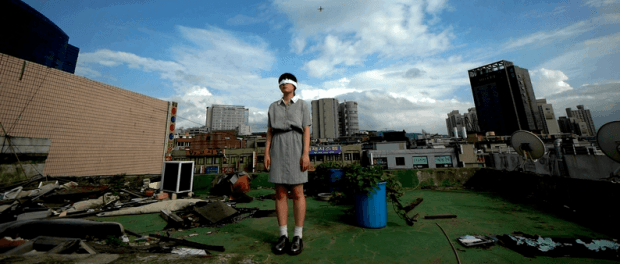Review of Factory Complex: Are We Machines?
I have always been fascinated by Korean films. I could not miss the opportunity to see one at the Montreal World Film Festival. My choice fell on Factory Complex. It is a documentary directed by Im Heung-soo that serves as a testament to women who worked in factories, whether sewing, electronics or tailoring. It’s the comparison between work conditions in 1960 and now. The director’s documentary is dedicated to his mother, who worked in the sewing factory, and all the women who fought for labor rights.
This film awakens the consciousness of the viewer to the miserable working conditions. Several workers were getting sick because of the conditions in which they were forced to work. There was a lot of dust and they could accumulate up to 13 hours of non-stop work. These women had no choice but to suffer their fate, as they needed the salary they earned, as little as it was. The strength of these women were put to the test. Some of them were raped.
Factory Complex also includes scenes where we see men and women blindfolded walking in the forest. They are in nature, there are flowers, and they are ultimately far from cities. They are far from those factories that kill them slowly, far from the obligation to work. While working conditions are deteriorating, human rights are violated.
Take for example the Samsung Company. Many workers were suffering from leukemia due to the chemicals used. The people working today said that working conditions have improved tremendously over the years. My thoughts jostle. This Samsung phone on my desk as I write this article. Who assembled it? How much the person was paid to do this job? What was the work environment of those people while we cannot pass a day without these machines that are at the heart of our lives?
This documentary is not only interested in the situation of Korean workers. The director take us to Cambodia. Girls and boys, sitting at their sewing machines. Pieces of clothing that will be sent to Japan, China or Korea. They earn money for their studies or to help their parents. They have no idea of the price of clothes they are making. Despite a few laps, the film does well to make the best transitions between different work places as they seek to portray the tough conditions of work. Workers fought, they went on strike, and they would not surrender their rights to injustice.
This film makes you think and it’s important to ask questions. We seem to forget it sometimes. What can we do ourselves to small scale to fight, to improve our conditions, or keep our gains? We have to think about our way of consuming without thinking, knowing that there will always be more. This film allows a deep reflection. I asked myself many questions after the screening. What changed? Does things really change or they constantly follow the same current? After all. We are not machines. We are not robots.
Factory Complex screened as part of the Montreal World Film Festival.







